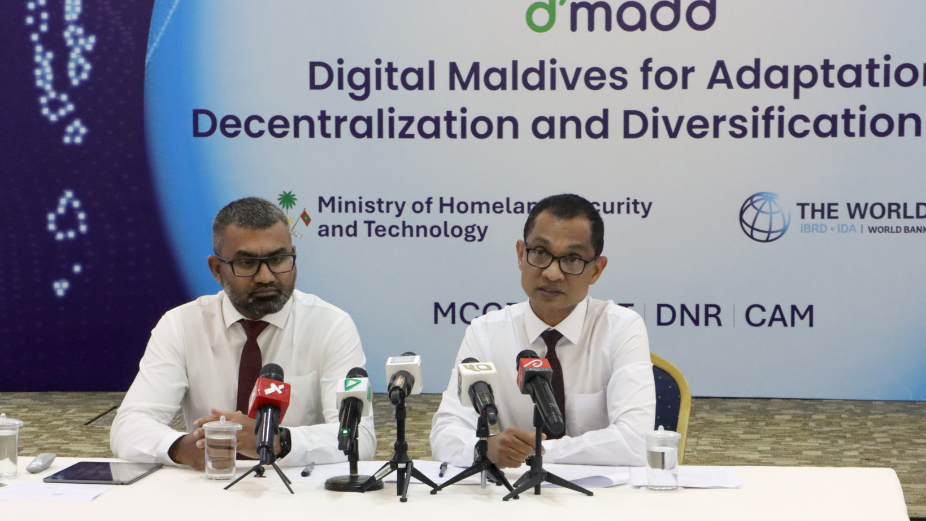
The Minister of State for Homeland Security and Technology, Dr Mohamed Kinaanath, has announced plans to enhance the National Centre for Information Technology (NCIT) and the digital identity card system, Efaas, with assistance from the World Bank. The announcement was made during a press conference detailing the Digital Maldives Adaptation, Decentralisation and Diversification Project, supported by the World Bank.
Dr Kinaanath revealed that the World Bank has provided USD 10 million in financial support for the project. The funds will be utilised to cover expenses for four administrative bodies, aiming to bolster the nation’s digital infrastructure and services.
“We are committed to carefully utilising the funds allocated to the NCIT to enhance the centre and further develop Efaas,” said Dr Kinaanath. “This will significantly improve our national digital identity systems and overall information technology capabilities.”
The allocation of the USD 10 million funding is as follows:
• USD 0.5 million for administrative costs of the project.
• USD 3 million for the Ministry of Climate Change, Environment and Energy.
• USD 2.6 million for the NCIT.
• USD 3 million for the Department of National Registrations.
• USD 0.9 million for the Communications Authority of Maldives.
The Director of the project, Dr Ibrahim Waheed, confirmed that practical work on the project commenced this year. “We anticipate that the results of the project will become visible from 2027 onwards,” he stated.
The Maldives and the World Bank signed an agreement on 4 July 2022 to undertake the Digital Maldives Adaptation, Decentralisation and Diversification Project. Under the project, several initiatives will be undertaken, including the development of frameworks for capacity building and providing assistance in drafting legislation.
The project is expected to play a crucial role in advancing the Maldives’ digital transformation, enhancing government services, and supporting decentralisation efforts.












